Rexarc is currently open from 7:30 AM – 4:00 PM EST, Monday – Friday. Read More
Rexarc is currently open from 7:30 AM – 4:00 PM EST, Monday – Friday. Read More
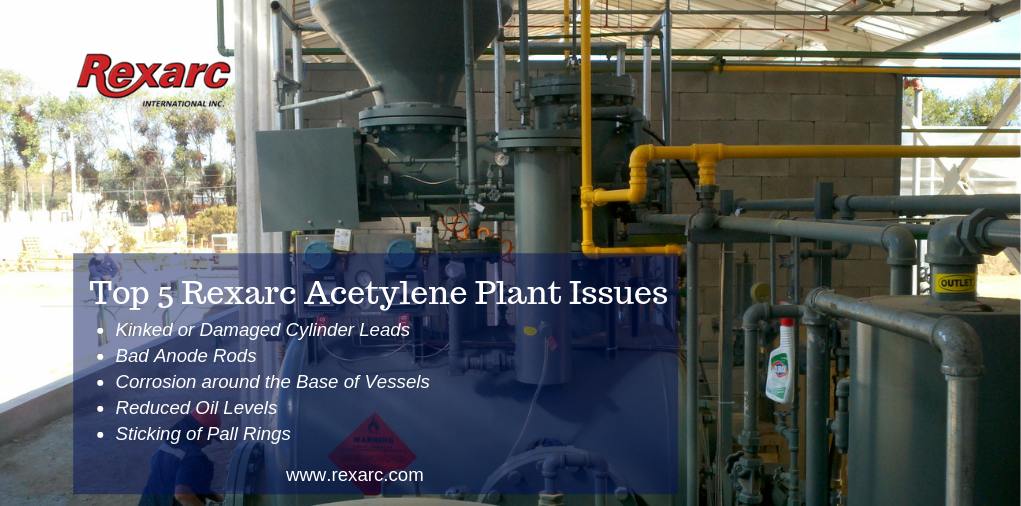
Acetylene gas plants are used for various continuous process applications such as for ethylene production in the chemical industry, in the metal fabrication industry for oxy-acetylene welding, cutting, brazing, and so on. There are several acetylene gas plant manufacturers in the US such as Rexarc, who have been delivering acetylene gas plants for a long time. The company has been serving customers since 1924 with acetylene gas plants and acetylene gas cylinders. Along with design and manufacturing of acetylene plants, the experts at Rexarc have been regularly addressing the operational issues of these plants. Recently, they opened up on the top 5 acetylene plant issues faced by their customers. These issues have been identified after scanning audit reports of the past 25 years. This post discusses these top 5 issues in detail, and how paying attention to these issues will help plant operators minimize their downtimes and maximize productivity.
Tips to Overcome Rexarc Acetylene Plant Issues
Let’s have a look into the common five issues faced by users of Rexarc acetylene plants in a reverse order.
Problem 5 – Pall Rings Stick Together in the Ammonia Scrubber: This happens if the ammonia scrubber is not washed on a regular basis with clean water. Lime or calcium in the water used for cleaning gets deposited on the surface of pall rings. These deposits start affecting the performance of a pall ring, which is designed to break up the acetylene bubbles to create more surface area. This breakup enables high ammonia absorption. So, if you fail to maintain pall rings, they eventually affect the performance of the ammonia scrubber. Thus, to avoid pall ring failure, the experts at Rexarc recommend changing them every three to five years. This replacement may not be possible at all times; in such cases experts recommend users to inspect these pall rings when the plant is removed from the service for generator cleaning. Also, they recommend cleaning these pall rings every year in either of the following ways:
Problem 4 – Reduced Oil Levels in the Agitator Shaft Drive Box and Screw Feed Gear Reducers: Experts recommend users to check oil levels in the agitator drive box on a monthly basis. They can easily do it by verifying the presence of oil in the number 2 port of the agitator drive box. If the agitator drive box fails, then your plant may not perform as expected. Thus, it is important to verify the presence of oil at port level 2 to ensure the good working condition of the agitator drive. Also, experts recommend users to drain all the oil from port 3 on an annual basis. They suggest refilling port 2 through port 1, and recommend the same procedure for screw feed gear reducers.
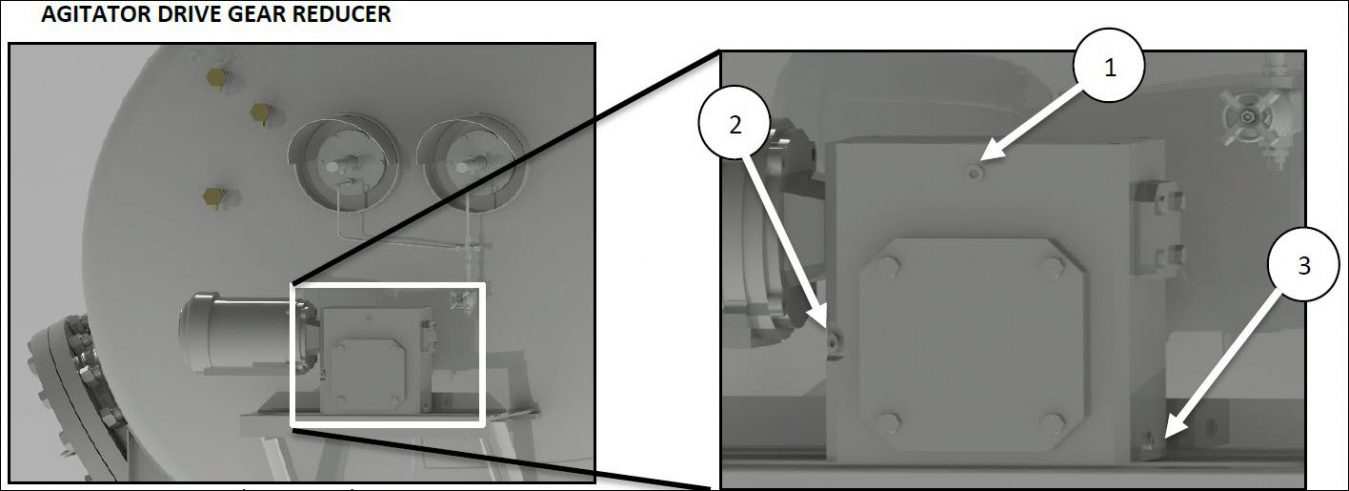
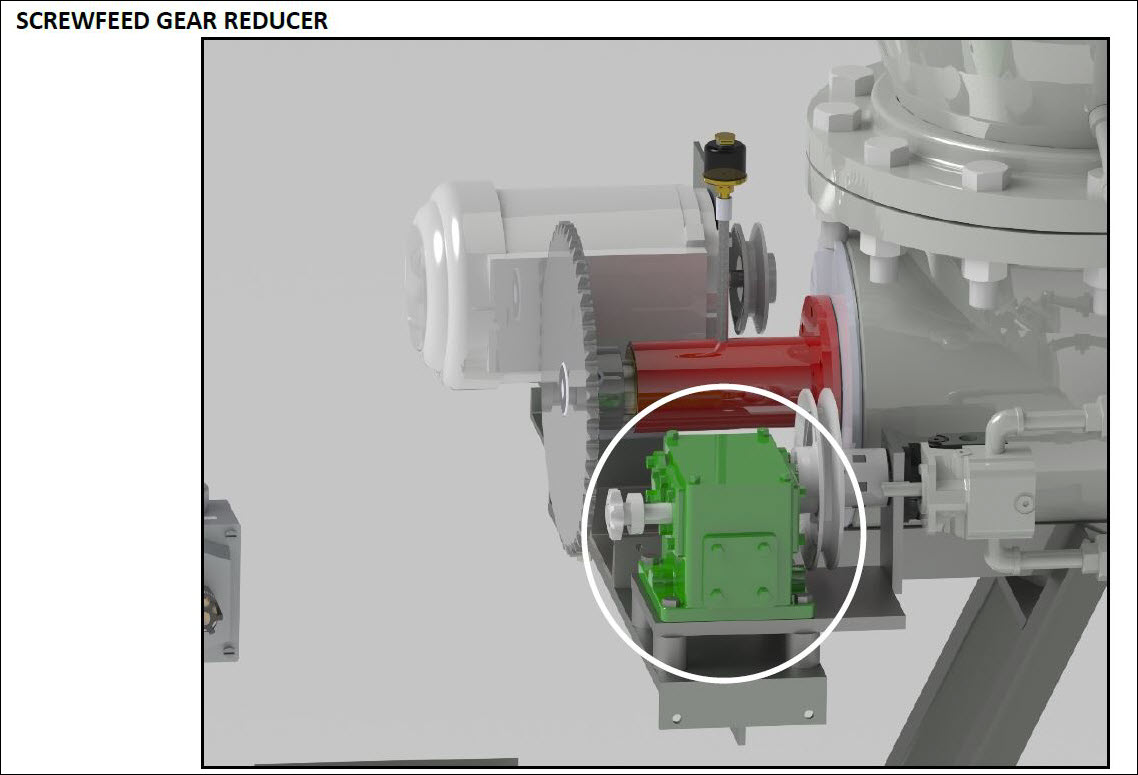
Problem 3 – Corrosion around the Base of Vessels: This issue is mostly noticed around the bases of the cooler condenser and ammonia scrubbers in plants where the vessels are not skidded. This happens because water and lime accumulate around the base of these vessels and cause corrosion. If this issue is ignored for a long time, there are all chances that the rust will affect the performance of the vessel, resulting in acetylene leak. Now, Rexarc is offering mounting bases for the plants where the vessels are not skidded. These mounting bases can be fitted to the bottom of the ammonia scrubber and the cooler condenser. It will help raise their level from the floor, and keep away water from the vessel. Also, it will enable streamlined airflow to evaporate any accumulated water near bases. This easy implementation will help ensure years of service to your vessels.
Problem 2 – Bad Anode Rods in the Compressor: Most compressors are equipped with four anode rods. These anode rods help prevent electrolysis and corrosion that may affect the performance of the compressor tank during the operation. These anode rods require regular maintenance to ensure their steady performance. Maintenance is always a more cost-effective option than replacement. However, experts at Rexarc confirm that most users do not perform any type of maintenance, and often the issue is found during the audit. So, they recommend replacement of anode rods which have expended 75% of their usefulness. By maintaining the anode rods, you add many years to their service.
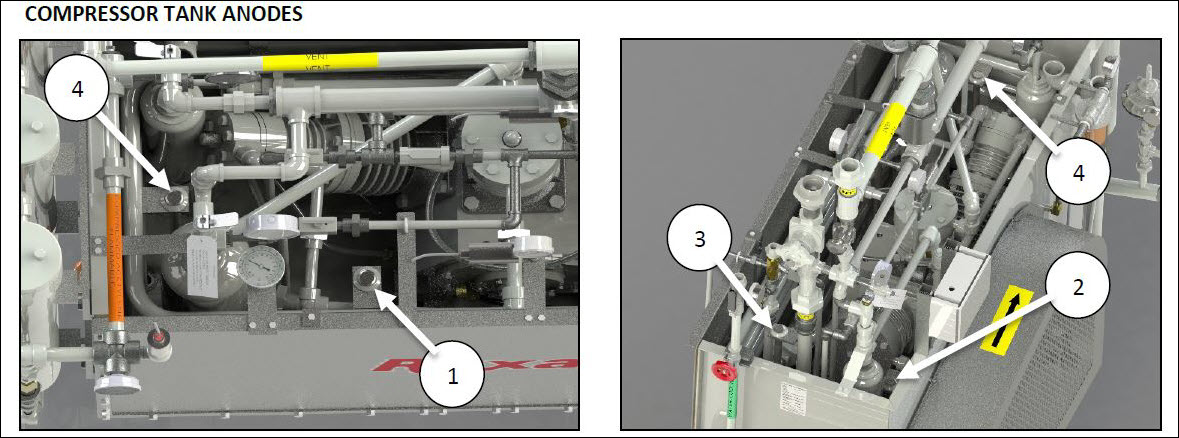
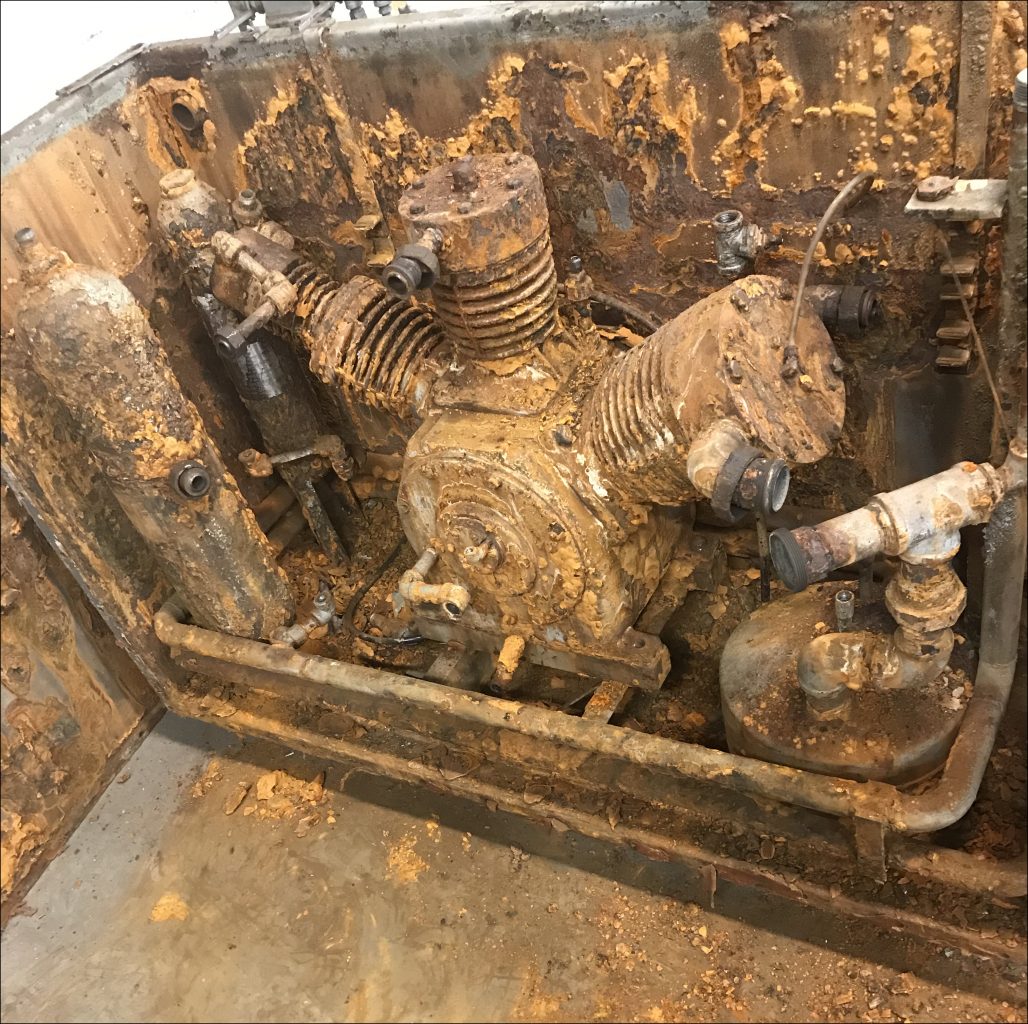
Problem 1 – Kinked or Damaged Cylinder Leads on the Charging Manifolds: Damaged and kinked cylinder leads are one of the most common causes of accidents in acetylene plants. In the below image, you can see four examples of kinked and damaged cylinder leads. In the image, number 1 and 2 are damaged from being caught between cylinders, as they are rolled into place for connection. In the image, number 3 and 4 are kinked. There might be a variety of reasons for kinking; however, one of the main reasons of kinking is when operators do not take their time for the connection. Experts say that during the audit they have found more than 50 damaged leads in most plants. Nowadays, many manufacturers provide these cylinder leads at cheap prices. Although plant operators can save on money by using these cheap variants, they have to spend a considerable amount of time in the maintenance of these leads. Improper maintenance of these cylinder leads may further lead to complications including risks of equipment failure and risk to operators.
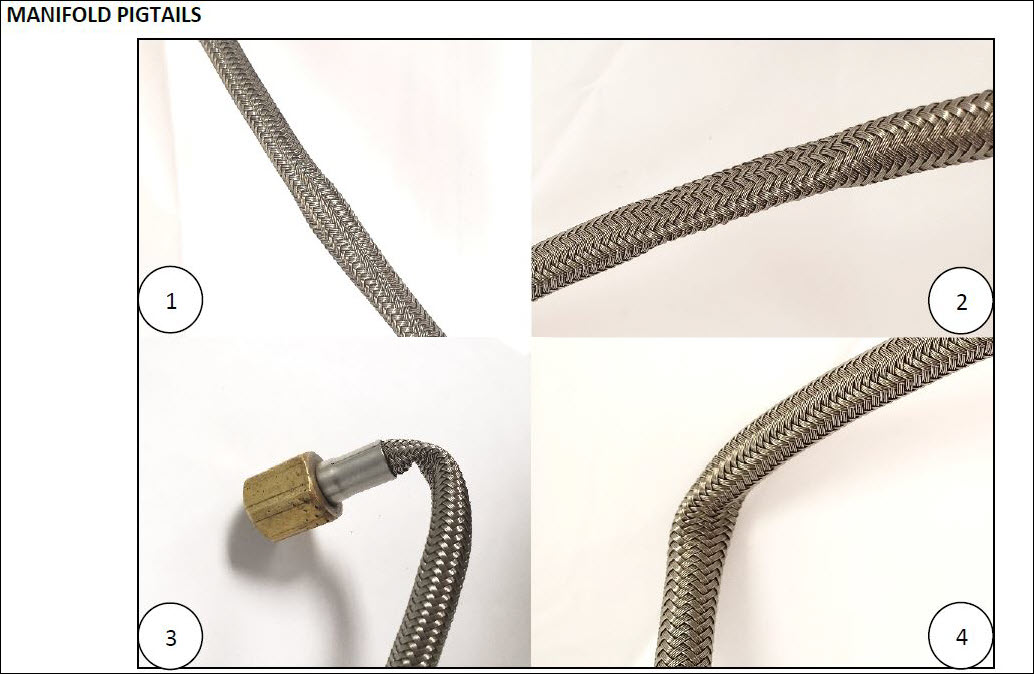
Rexarc is now offering a Teflon core cylinder lead, which is better than regular stainless steel braided core. The lead is developed in partnership with LifeGuard to offer users an ISO 14113 cylinder lead, which is durable, and assures an automatic flow shut off in an extreme case of cylinder lead rupture.
Experts conclude that paying attention to these problems and taking proactive measures to avoid them will help users improve their operational efficiencies, safety and service life of their equipment, and the safety of their most valuable asset, which is people.
Check out the video on these 5 acetylene plant issues for more explanations.

We are a one stop shop from custom vessel production to full skidding, plumbing and instrumentation.

We stand by our processes and communicate with you on your project status as much or as little as you would like.
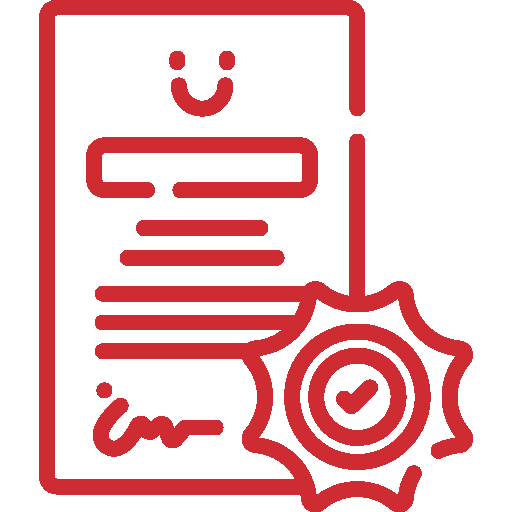
We continually reinvest in our people, business, and equipment technology to ship quality products on time.
